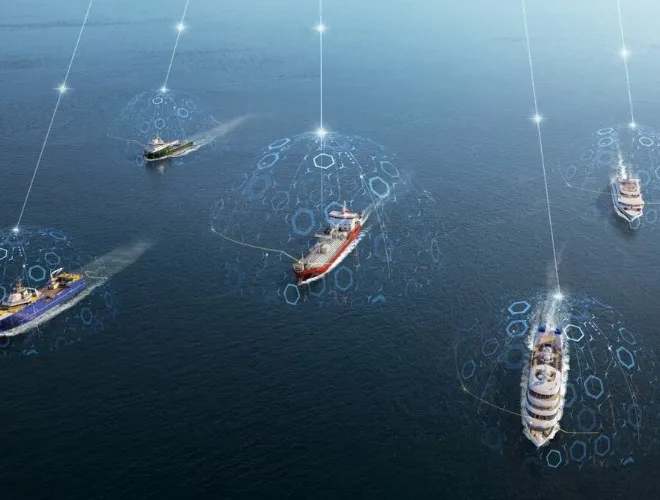Ethical maritime trade is emerging as a vital response to the growing challenges facing our oceans. In a world where environmental and social issues intertwine, this approach aims to balance economic needs with the preservation of our precious marine biodiversity. While overfishing, pollution and climate change threaten the fragile balance of ocean ecosystems, adopting ethical practices in navigation appears not only as a moral obligation, but also as an opportunity for innovation and sustainable development. By lighting the way towards responsible practices, ethical maritime trade could well become a beacon guiding our societies towards a future where the oceans are respected and protected for generations to come.
| Appearances | Importance |
| Environmental Impact | Reduction of pollution and overfishing. |
| Working Conditions | Ensures dignified conditions for sailors. |
| Transparency | Promotes the traceability of maritime products. |
| Local Economy | Support for coastal communities and small businesses. |
| Technological Innovation | Encourages sustainable practices and green technologies. |
| Regulations | Implemented strict standards to protect the oceans. |
- Sustainability : Use of responsible fishing practices
- Fair trade: Respect of employee working conditions
- Innovation : Technologies to reduce carbon footprint
- Conservation : Protection of endangered species and marine habitats
- Traceability: Tracking seafood throughout the supply chain
- Education : Raising consumer awareness about ethical choices
- Collaboration: Partnerships between businesses, NGOs and governments
- Regulation : Strengthening maritime laws for ethical trade
- Investment : Financial support for sustainable initiatives
- Local economy: Promoting local markets to strengthen coastal communities
Table of Contents
ToggleThe importance of responsible maritime trade

Adopt a ethical maritime trade is crucial to ensuring the sustainability of our oceans. Shipping routes, often preferred for international transportation due to their efficiency, must be managed responsibly. For example, the wine industry’s environmental impact on climate and geopolitics can be mitigated by adopting responsible shipping practices.
Environmental challenges facing the maritime sector include marine pollution, overfishing and climate change. These problems have dramatic consequences on marine ecosystems and biodiversity. Therefore, it is essential to promote sustainable fishing practices and reduce greenhouse gas emissions from vessels.
In addition, the fashion sector, by adopting slow fashion, can also positively influence the maritime trade. Reducing demand for fast and frequent shipments of clothing limits pressure on maritime infrastructure and encourages more sustainable practices.
Safety at sea is another major issue. THE attacks in the Red Sea, for example, have a significant impact on the costs and risks associated with maritime transport. It is imperative to strengthen security measures to protect shipping routes and crews while minimizing environmental impact.
To adopt a responsible maritime trade, companies must:
- Use less polluting fuels
- Optimizing maritime routes to reduce emissions
- Promote sustainable fishing methods
- Ensuring the safety of ships and crews
It is important to support technological innovation, such as renewable marine energy projects, to reduce the ecological footprint of maritime transport and protect marine ecosystems.
Environmental impact of maritime trade
THE maritime trade is at the heart of the global economy, connecting continents and facilitating the exchange of goods. However, it is imperative to adopt responsible practices to protect our oceans. The importance of a responsible maritime trade cannot be underestimated, especially in the face of current environmental challenges.
One of the main issues is theenvironmental impact of maritime trade. Greenhouse gas emissions from ships contribute significantly to climate change. Additionally, chemical and oil spills, as well as plastic waste, pollute our waters and threaten the marine biodiversity.
Efforts to reduce this impact include:
- Adoption of clean propulsion technologies
- The use of less polluting fuels
- Establishing effective waste management systems
- Compliance with international regulations on emissions
Another crucial aspect is the promotion of free zones to encourage sustainable practices in the maritime sector. These zones allow for stricter regulation and offer tax and customs benefits for companies engaged in sustainability initiatives.
To support this transition, public awareness and collaboration among stakeholders are essential. Encouraging collective awareness of the importance of responsible maritime practices can lead to positive and lasting change.
Role of regulations in ethical navigation
There sustainability of maritime trade has become a priority in the face of numerous ecological challenges. By rethinking the navigation practices and the transport of goods, the maritime sector can play a crucial role in preserving our ocean resources.
THE carbon emissions due to sea freight, for example, represent a significant share of global CO2 emissions. Promote innovative technologies, such as alternative fuels and cleaner propulsion systems, can greatly reduce this environmental footprint. Additionally, optimizing shipping routes and improving ship energy efficiency are key strategies to minimize these impacts.
There maritime regulations plays a central role in the adoption of ethical practices. International conventions, such as the MARPOL Convention, establish strict standards for the prevention of marine pollution. These regulations require shipowners and operators to conform their activities to ecological standards, thus contributing to the protection of the environment. marine biodiversity.
In strategic regions such as Red Sea, where up to 15% of world trade passes, the ethical issues are all the more pressing. The risks associated with maritime security and environmental threats require increased vigilance and international cooperation to secure these roads while respecting the local ecosystem.
Raising awareness among the public and various stakeholders about these issues is essential for a transition towards a sustainable maritime trade. By mobilizing public opinion and encouraging responsible behavior, it is possible to create significant change in the way maritime affairs are conducted.

Frequently Asked Questions
Ethical maritime trade refers to business practices that respect social, environmental and economic standards, ensuring that the negative impact on oceans and coastal communities is minimized.
Maritime trade plays a crucial role in the global economy, but it can also contribute to ocean degradation. By adopting ethical practices, we can preserve marine biodiversity and promote environmental sustainability.
Challenges include adequate regulation, compliance with environmental standards, combating illegal fishing and raising consumer awareness about their purchasing choices.
Consumers can support ethical shipping by choosing certified products, reducing their use of plastics and educating themselves about company practices.
Many initiatives such as sustainable certifications, awareness campaigns and partnerships between businesses and NGOs are being put in place to promote ethical practices in maritime trade.









